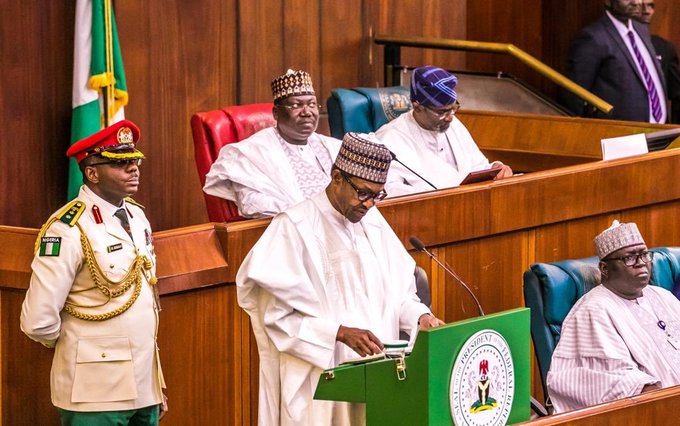There are no products in your shopping cart.
| 0 Items | £0.00 |

 PRESIDENT Muhammadu Buhari has presented his 2020 budget to the National Assembly with projected spending of N10.33trn ($28.4bn) centred around significant investment in capital projects to create jobs and develop infrastructure.
PRESIDENT Muhammadu Buhari has presented his 2020 budget to the National Assembly with projected spending of N10.33trn ($28.4bn) centred around significant investment in capital projects to create jobs and develop infrastructure.
According to the African Development Bank, Nigeria has an annual infrastructural deficit of $100bn and desperately needs to invest in areas such as roads, rail, power generation, housing, sewage works, etc. Also, with Nigeria now the poverty capital of the world with some 91.6m living in extreme poverty according to the latest survey published by the World Poverty Clock, massive investment is needed to address the matter.
With Nigeria only having a gross domestic product (GDP) of about $400bn, the economy is not robust enough to generate the funds needed to deliver a radical budget. Also, with over 90% of government revenue coming from crude oil sales and the nation having one of the lowest tax-to-GDP ratios in the world of just 6%, the finance ministry simply does have the funds to meet a government promise to lift 100m people out of poverty.
Trying to make end meet with the limited resources at his disposal, President Buhari presented the 2020 Appropriation Bill to a joint session of the National Assembly this morning. He said the budget is designed to enhance his administration’s social investment programmes in order to further deepen their impact on the marginalised and most vulnerable Nigerians.
Accompanied by members of the Federal Executive Council, President Buhari initially proposed a budget of N10.007trn but the figure was increased to N10.33trn by the National Assembly. In his speech, President Buhari said the 2020 budget was designed to be a budget of fiscal consolidation to strengthen Nigeria's macroeconomic environment, investment in critical infrastructure, human capital development and enabling institutions, especially in key job creating sectors.
He added that the budget was meant for incentivising private sector investment essential to complementing the government’s development plans, policies and programmes and enhancing Nigeria's social investment programmes to further deepen their impact on the marginalised and most vulnerable. According to the president, total federal government revenue expected in 2020 should total N8.155trn, comprising oil revenue of N2.64trn, non-oil tax revenues of N1.81trn and other revenue of N3.7trn.
President Buhari added: “This is 7% higher than the 2019 comparative estimate of N7.594trn inclusive of the government owned enterprises." He said non-debt recurrent expenditure includes N3.6trn for personnel and pension costs, representing an increase of N620.28 over the 2019 fiscal year figure.
“This increase reflects the new minimum wage as well as our proposals to improve remuneration and welfare of our police and armed forces," President Buhari added. He disclosed that N2.46trn was earmarked for capital projects, inclusive of N318.06bn in statutory transfers.
Other estimates are N556.7bn for statutory transfers, N2.45trn for debt servicing and the provision of N296bn as sinking fund. President Buhari explained that the sinking fund would be used to retire maturing bonds to local contractors.
Funding for the 2020 budget is based on an oil production estimate of 2.18m barrels per day at a price of $57 per barrel and an exchange rate of N305 to a dollar. Other benchmarks are a real GDP growth rate of 2.93% while the inflation rate is expected to remain slightly above single digits in 2020.
On sectoral allocation, the president said the Federal Ministry of Interior would get N35bn as against N569bn in 2019, defence would get N100bn, education N48bn and health N46bn. He noted with delight the increase in Nigeria's foreign reserves to $42.5bn in August from $23bn in 2016.
“This increase is largely due to favourable prices of crude oil in the international market, minimal disruption of production given the stable security in the Niger Delta region and our import substitution drive, especially in key commodities," President Buhari added.